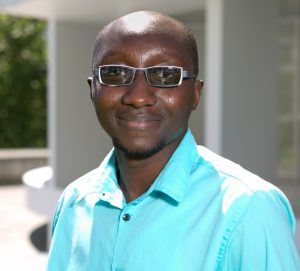 We will be receiving Bissyandé Tégawendé from the SnT (Interdisciplinary Centre for Security, Reliability and Trust) of the University of Luxembourg who will give a talk about Bug Report driven Program Repair on Friday, June the 14th at 2pm in room Ouessant.
We will be receiving Bissyandé Tégawendé from the SnT (Interdisciplinary Centre for Security, Reliability and Trust) of the University of Luxembourg who will give a talk about Bug Report driven Program Repair on Friday, June the 14th at 2pm in room Ouessant.
Abstract: Issue tracking systems are commonly used in modern software development for collecting feedback from users and developers. An ultimate automation target of software maintenance is then the systematization of patch generation for user-reported bugs. Although this ambition is aligned with the momentum of automated program repair, the literature has, so far, mostly focused on generate-and-validate setups where fault localization and patch generation are driven by a well-defined test suite. On the one hand, however, the common (yet strong) assumption on the existence of relevant test cases does not hold in practice for most development settings: many bugs are reported without the available test suite being able to reveal them. On the other hand, for many projects, the number of bug reports generally outstrips the resources available to triage them. Towards increasing the adoption of patch generation tools by practitioners, we investigate a new repair pipeline, MIMIC, driven by bug reports: (1) bug reports are fed to an IR-based fault localizer; (2) patches are generated from fix patterns and validated via regression testing; (3) a prioritized list of generated patches is proposed to developers. We evaluate MIMIC on the Defects4J dataset, which we enriched (i.e., faults are linked to bug reports) and carefullyreorganized (i.e., the timeline of test-cases is naturally split). MIMIC generates genuine/plausible patches for 21/44 Defects4J faults with its IR-based fault localizer. MIMIC accurately places a genuine/plausible patch among its top-5 recommendation for 8/13 of these faults (without using future test cases in generation-and-validation).
Bio: Dr. Tegawendé F. Bissyandé is a research scientist at the SnT (Interdisciplinary Centre for Security, Reliability and Trust) of the University of Luxembourg. He received his PhD from the University of Bordeaux in 2013, and his research interests span several topics in software engineering, most notably empirical software engineering, secure mobile software engineering, software bug localisation and program repair. He has extensively published in various major venues such as ICSE, ESEC/FSE, TSE, TIFS, EMSE…


